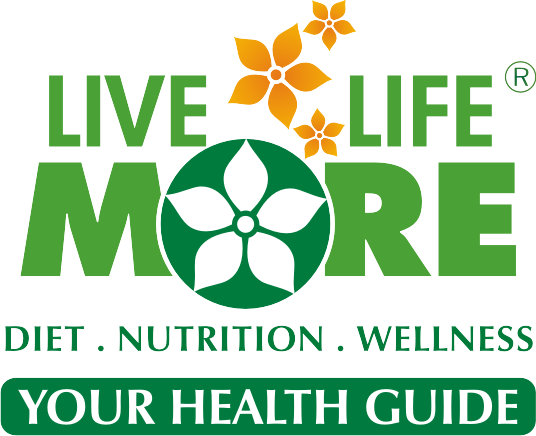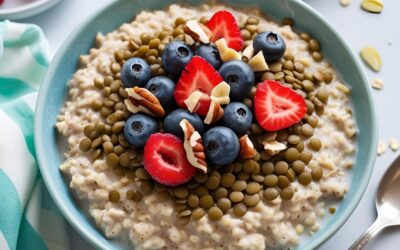Vegetarianism has seen a significant rise in popularity in recent years. It’s associated with a reduced risk of chronic diseases and can support weight loss, as confirmed by reputable sources.
However, a vegetarian diet is also a fantastic choice for those looking to manage their weight and diabetes. These diets are typically rich in nutrients, low in calories, and high in fiber, which helps to regulate blood sugar levels and reduce the risk of type 2 diabetes.
For those in Surrey, seeking guidance from a weight loss consultant in Surrey, BC can provide personalized plans to meet your health goals
This article will guide you on how to successfully lose weight while following a vegetarian diet
Table of Contents
What is a Vegetarian Diet?
The Vegetarian Meal Plan for Weight Loss
Focus on Calorie Intake and Expenditure
Consider Macronutrients
Create a Balanced Vegetarian Plate
Sample of a Vegetarian Meal Plan for Weight Loss
● Beginner Level
● Intermediate Level
● Advanced Level
Vegetarian Diet for Specific Needs: What to Consider
Vegetarian Diet for Diabetes
Gluten-Free Vegetarian Diet
Vegetarian Diet for Kapha (Ayurvedic)
Tips & Tricks to Lose Weight on Vegetarian Diet
● Vegetarian Meal Prep Ideas
● Healthy Vegetarian Snacks
● Incorporate Exercise into a Vegetarian Weight Loss Plan
● Overcoming Common Challenges in Vegetarian Weight Loss
● Finding Motivation and Staying Consistent
Vegetarian Recipes: A Look at Delicious and Healthy Meals
Get Nutritionist Help!
What is a Vegetarian Diet?
A vegetarian diet excludes meat, fish, and poultry. People may choose this diet for religious, ethical, or health reasons. So, the main types of the vegetarian diets are:
Includes eggs and dairy but excludes meat, fish, and poultry.
Includes dairy but excludes eggs, meat, fish, and poultry.
Includes eggs but excludes dairy, meat, fish, and poultry.
Excludes all animal products, including dairy, eggs, and honey.
Other related eating patterns include:
Mostly vegetarian but includes some animal foods.
Includes fish but not meat.
Each type offers different nutritional benefits and considerations. It’s important to understand these differences to make informed dietary choices.
Vegetarian diets are linked to a lower risk of heart disease, certain cancers, diabetes, and high blood pressure, and can support weight loss.
So, to ensure nutritional adequacy, focus on getting enough protein, iron, calcium, and vitamin B12 from a variety of plant-based sources. With careful planning, vegetarians can meet all their nutritional needs and enjoy a wide variety of foods.
Consulting with a diet consultant in Surrey can help you develop a balanced meal plan.
The Vegetarian Meal Plan for Weight Loss
While a vegetarian diet can be effective for weight loss, several factors can influence its success.
Focus on Calorie Intake and Expenditure
Weight loss occurs when you burn more calories than you consume. To achieve this, it is essential to understand your daily caloric needs and develop a meal plan that supports this goal.
Consider Macronutrients
Protein: Vital for muscle repair and growth. Include sources such as legumes, nuts, and tofu in your diet.
Carbohydrates: Provide energy for daily activities. Opt for whole grains, fruits, and vegetables.
Fats: Necessary for nutrient absorption. Choose healthy fats like avocados, nuts, and olive oil.
Create a Balanced Vegetarian Plate
A well-balanced plate should consist of half vegetables, a quarter protein, and a quarter whole grains or starches. This balance helps manage blood sugar levels and keeps you feeling full longer.
Sample of a Vegetarian Meal Plan for Weight Loss
This meal plan provides a few ideas for a vegetarian diet for weight loss.
- Beginner Level
Start with simple and quick recipes that are easy to prepare, such as salads and stir-fries. These dishes are straightforward and require minimal cooking time, making them ideal for those new to vegetarian meal planning.
- Intermediate Level
As you become more comfortable, try more complex recipes like vegetable curries and grain bowls. These meals offer a range of flavors and nutrients while still being manageable to cook.
- Advanced Level
For those looking to expand their culinary skills, experiment with new ingredients and cooking techniques. Try dishes such as tofu scrambles and vegetable lasagna, which provide a more intricate cooking experience and diverse flavors.
Vegetarian Diet for Specific Needs: What to Consider
When it comes to managing specific dietary needs with a vegetarian diet, there are various considerations to keep in mind.
Vegetarian Diet for Diabetes
Focusing on low glycemic index foods can help manage blood sugar levels. These include whole grains, legumes, and most fruits and vegetables. Here are some tips for meal planning:
- Opt for fiber-rich foods:
They help slow down the absorption of sugar.
- Include a source of protein with every meal:
This can be tofu, tempeh, or legumes.
- Avoid processed foods and sugary beverages:
They can cause blood sugar spikes.
Gluten-Free Vegetarian Diet
For those with gluten sensitivities or celiac disease, there are plenty of gluten-free grain alternatives such as quinoa, rice, and millet. Here are some recipe ideas:
- Quinoa salad with mixed vegetables and a lemon-tahini dressing
- Rice and black bean burritos with avocado
- Millet porridge with almond milk and berries
Vegetarian Diet for Kapha (Ayurvedic)
Balancing Kapha through diet involves focusing on light, dry, and warm foods. Spices like ginger, turmeric, and black pepper are beneficial. Recommended foods include:
- Leafy greens, asparagus, and bell peppers
- Spices such as cumin, coriander, and fennel
For personalized guidance, consider scheduling a consultation with a diabetes consultant in Surrey, BC .
Tips & Tricks to Lose Weight on Vegetarian Diet
Maintaining a vegetarian diet while pursuing weight loss or managing health conditions like diabetes can present unique challenges. To maximize the benefits of your vegetarian diet, we’ve compiled practical tips and tricks.
- Vegetarian Meal Prep Ideas
Prepare meals in advance by cooking large batches of grains, beans, and vegetables. Store them in the fridge or freezer for quick and healthy meals throughout the week. Mix these staples with fresh greens and herbs for easy, nutritious dishes.
- Healthy Vegetarian Snacks
Keep healthy snacks handy to stay on track. Opt for fresh fruit, raw veggies with hummus, or a handful of nuts. Prepare snacks like roasted chickpeas or energy balls for a satisfying, nutrient-rich option.
- Incorporate Exercise into a Vegetarian Weight Loss Plan
Combine cardio and strength training to support weight loss. Activities like walking, cycling, and swimming are effective, while strength training builds muscle and boosts metabolism. Regular exercise enhances results and overall health.
- Overcoming Common Challenges in Vegetarian Weight Loss
Address cravings and hunger by planning balanced meals and snacks. Stay hydrated and ensure a variety of nutrients from plant-based sources. A dietitian can offer personalized advice to help navigate challenges.
- Finding Motivation and Staying Consistent
Set realistic goals, track progress, and seek support from friends or online communities. Consistency and gradual, sustainable changes are key to long-term success. Celebrate your achievements to stay motivated.
Vegetarian Recipes: A Look at Delicious and Healthy Meals
This section offers a collection of flavorful and nutritious options to keep your meals exciting and satisfying.
- Breakfast:
Kickstart your day with a satisfying breakfast. Try a tofu scramble cooked with spinach and bell peppers for a hearty and nutrient-rich meal. Alternatively, prepare oatmeal using almond milk, chia seeds, and berries for a creamy and nutritious start.
- Lunch:
For lunch, consider a quinoa and black bean salad, enhanced with avocado and a zesty lime dressing. Another option is a grilled vegetable wrap, filled with hummus and an assortment of fresh vegetables for a tasty and satisfying meal.
- Dinner:
For dinner, enjoy stir-fried tofu combined with mixed vegetables and served over brown rice for a balanced and flavorful dish. A comforting lentil soup with kale and carrots provides a hearty and nutrient-dense option.
- Snacks:
Healthy snacks can keep you energized throughout the day. Try roasted chickpeas for a crunchy, protein-rich treat. Carrot and cucumber sticks paired with hummus offer a simple yet wholesome snack.
- Desserts:
Finish your meal with a sweet touch. Baked apples sprinkled with cinnamon make for a warm and comforting dessert. For a refreshing treat, chia pudding mixed with almond milk and cocoa powder delivers a satisfying end to your meal.
Get Nutritionist Help!
A well-planned vegetarian diet can aid in weight loss and diabetes management.
For personalized guidance, contact LiveLifeMore Ideal Weight Loss & Wellness Clinic in Surrey, BC.
If you’re managing diabetes or aiming for weight loss, our team is here to help. Reach us to learn more about how we can better your health.




